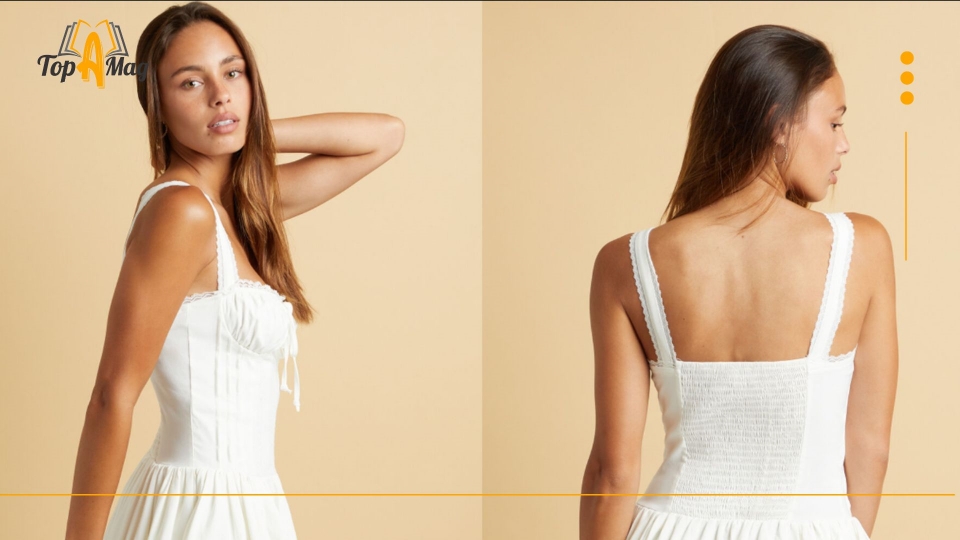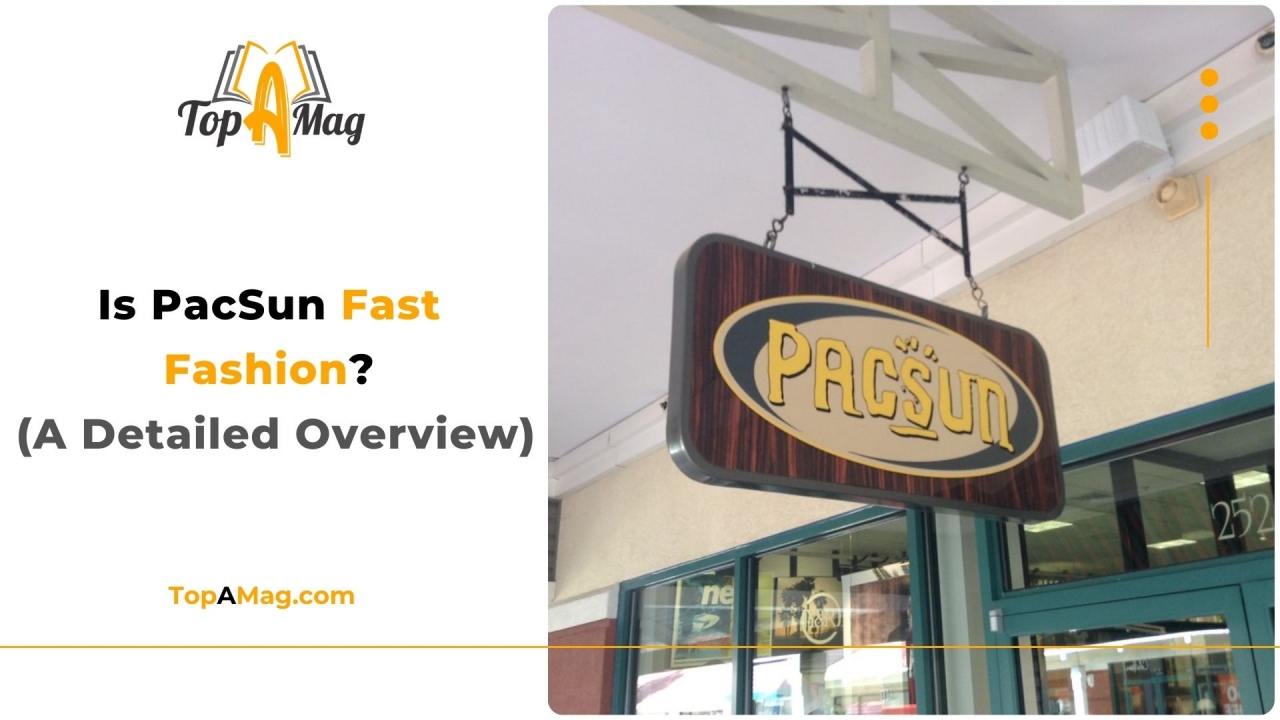When discussing fast fashion, brands like H&M or Zara typically come to mind, but PacSun also plays a significant role in this fast-paced, cost-efficient sector. PacSun, short for Pacific Sunwear, primarily caters to a youthful audience with a focus on casual, trendy apparel. The company’s approach raises questions about its alignment with fast fashion principles. In this article by The Top A Mag team, we’ll explore PacSun’s business model, environmental impact, and ethical considerations to answer the question: Is PacSun fast fashion?
What Is Fast Fashion?
Before diving into PacSun’s practices, it’s important to understand what fast fashion means. Fast fashion is a business model that prioritizes rapid production and distribution of trendy, affordable clothing. These companies often rely on outsourcing to low-cost manufacturing countries, allowing them to push new styles at low prices. While this allows consumers to stay up-to-date with trends, it comes with significant environmental and ethical consequences, including waste, pollution, and labor exploitation.
Business Model: Is PacSun Fast Fashion?
PacSun operates much like a traditional fast fashion brand. It offers clothing that is trendy and affordable, targeting teens and young adults who want to keep up with the latest styles. The company often produces short-lived garments designed for a season or two before replacing them with new styles. This is a hallmark of fast fashion—a cycle of rapid consumption and disposal.
PacSun’s use of low-cost materials and overseas production contributes to the fast fashion model. The brand sources its clothing from a variety of countries, including China, Vietnam, and Indonesia. These locations are known for cheap labor, which allows brands like PacSun to keep their production costs low and their retail prices competitive.
Environmental and Social Impact
PacSun claims ethical sourcing and sustainability, but there’s little evidence it differs significantly from other fast fashion brands. The company partners with organizations like American Forests to plant trees and offset carbon, but these efforts are minimal compared to its production impact.
Critics have targeted PacSun, like many fast fashion companies, for its environmental practices. It relies heavily on synthetic fabrics like polyester, which come from petroleum and contribute to microplastic pollution in waterways. Additionally, PacSun has not set concrete goals for reducing its greenhouse gas emissions or eliminating hazardous chemicals from its supply chain.
Moreover, the brand’s labor practices have also been questioned. Although PacSun states that it partners with suppliers who follow ethical labor practices, the company has been associated with factories in countries where labor laws are less stringent. This is typical in the fast fashion industry, where companies prioritize cost-cutting measures over the welfare of their workers.

Quality and Longevity of PacSun Clothing
A key criticism of PacSun is the low durability of its clothing. Like many fast fashion brands, PacSun uses cheap materials to keep costs low, and as a result, many customers find that their clothing does not last very long. It’s not uncommon for PacSun pieces to wear out after just a few months of use. This is in stark contrast to brands that focus on long-lasting, high-quality materials.
Many fast fashion companies, including PacSun, rely on the concept of planned obsolescence. The idea is that by making clothing that wears out quickly, consumers are encouraged to return and buy more items. This cycle of consumption is a key driver of fast fashion’s profitability.
Sustainability Efforts at PacSun
PacSun’s sustainable practices fall short compared to the environmental goals of more eco-conscious brands. The brand also partners with groups like Trees for the Future, but these efforts seem more like marketing than true environmental policy. PacSun lacks transparent reporting on sustainability metrics, making it hard for consumers to assess the effectiveness of its efforts.
PacSun does use some eco-friendly materials, such as organic cotton, in select lines of clothing, but this represents a small fraction of its overall product offerings. Most of its products still rely on conventional cotton and synthetic fabrics, which have a higher environmental impact.
Is PacSun Ethical?
From a labor perspective, PacSun has not distinguished itself from other fast fashion retailers. PacSun outsources production to countries with lower labor standards, low wages, and often poor working conditions. The company claims to work with ethical suppliers but offers no details on enforcing or monitoring these standards.
PacSun’s rating on ethical platforms like Good On You is poor, particularly in categories like labor rights, environmental impact, and animal welfare. The brand hasn’t committed to reducing hazardous chemicals or increasing transparency in its sourcing practices.
Conclusion: Is PacSun Fast Fashion?
The short answer is yes—cc fits the definition of a fast fashion brand. Its business model revolves around producing trendy, latest fashion affordable clothing at a rapid pace, which encourages consumers to purchase new items frequently. Though the company has taken steps toward sustainability, they remain minimal and don’t address major environmental or ethical issues.
PacSun’s use of low-quality materials and cheap manufacturing in questionable labor countries reinforces its fast fashion status. For consumers concerned about sustainability and ethics, PacSun may not be the best choice.

